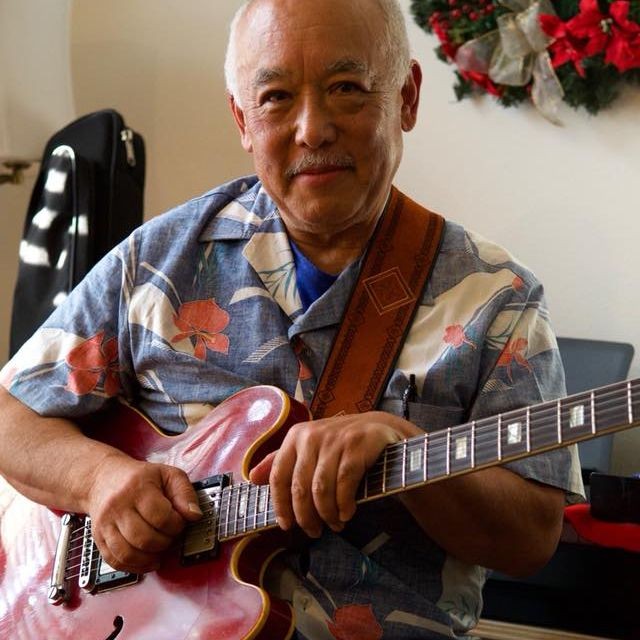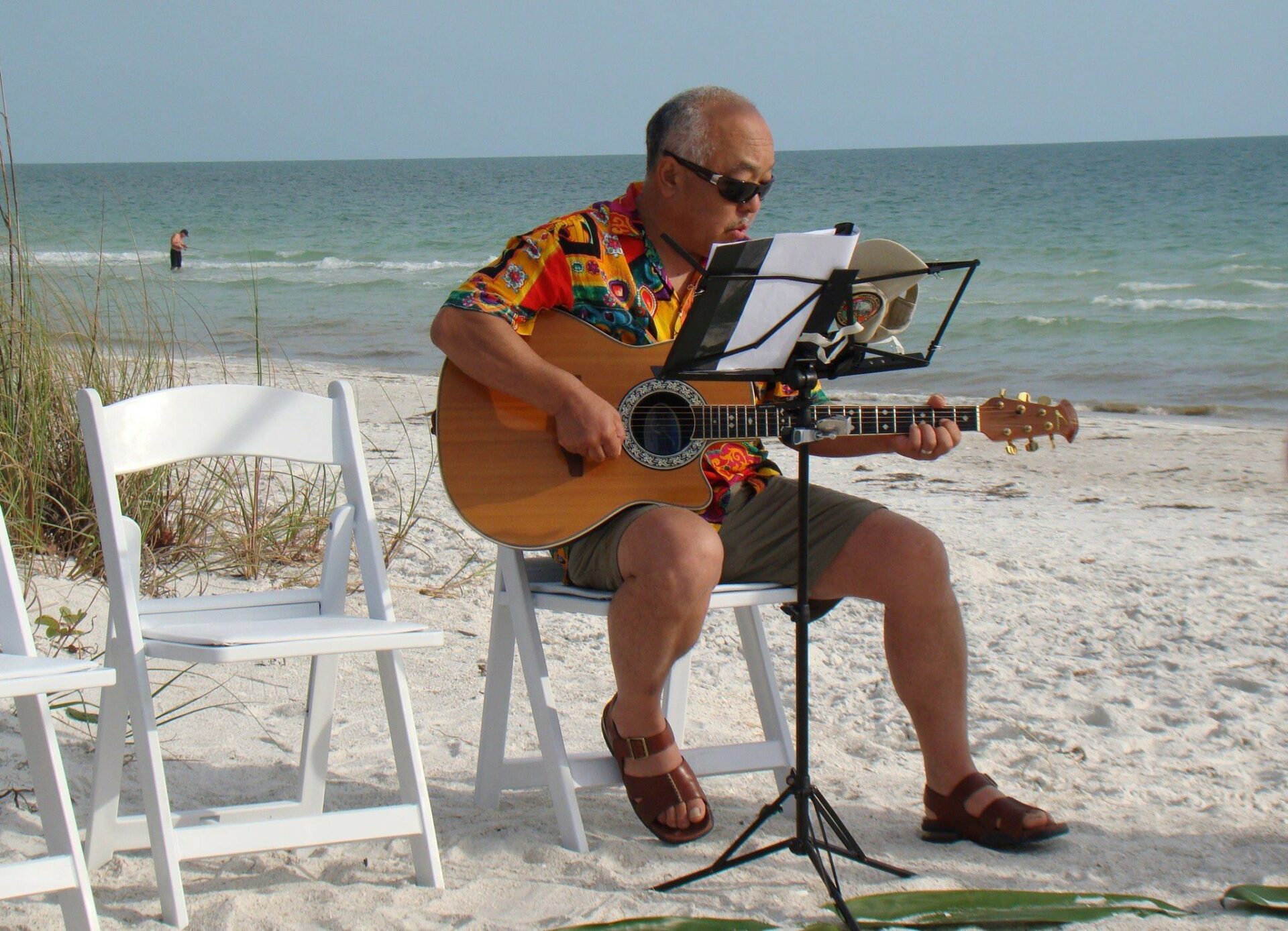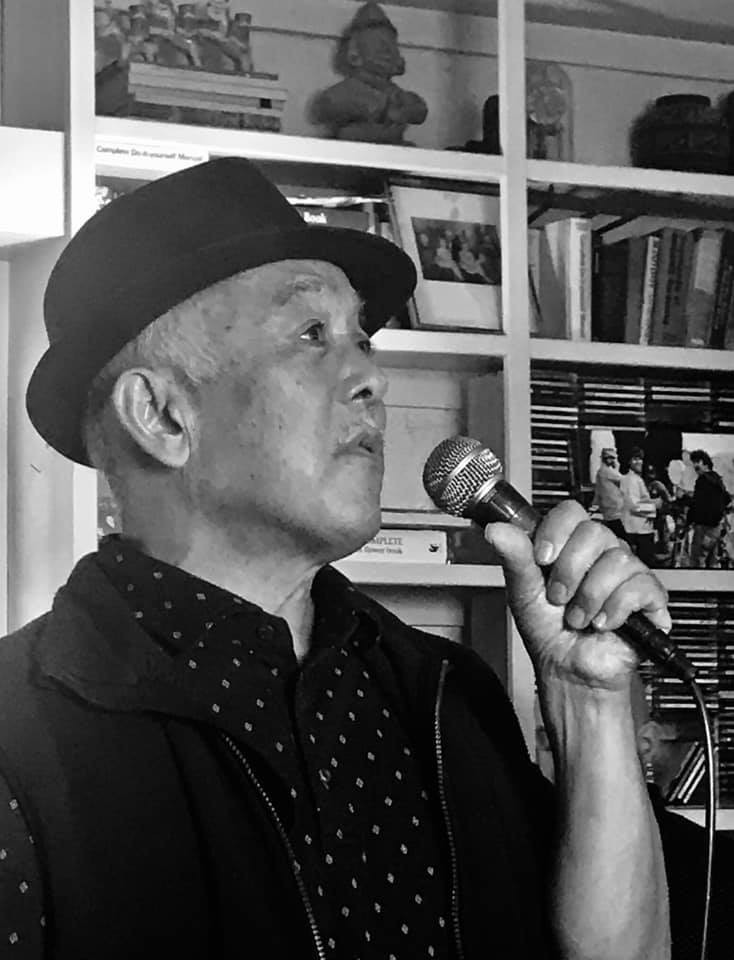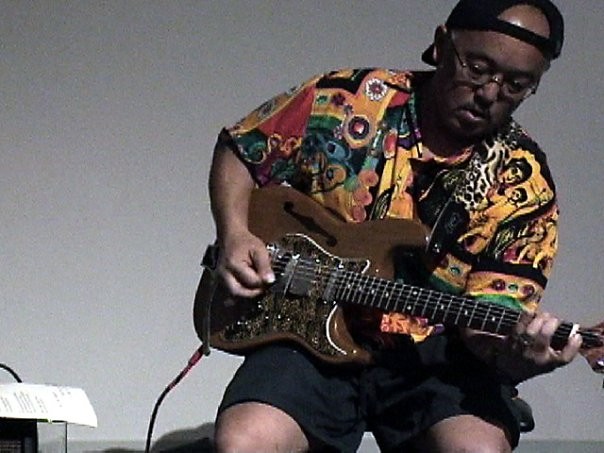We’re excited to introduce you to the always interesting and insightful Ken Okuno. We hope you’ll enjoy our conversation with Ken below.
Ken, so great to be with you and I think a lot of folks are going to benefit from hearing your story and lessons and wisdom. Imposter Syndrome is something that we know how words to describe, but it’s something that has held people back forever and so we’re really interested to hear about your story and how you overcame imposter syndrome.
As a child I was quiet, inward, enjoyed my friends but my shyness ruled me. To come forward and declare my emotions was not something that came naturally. So of course I grew up fascinated with performing, though I never thought of myself as a performer. This last sentence doesn’t make sense but there’s a truth to it that I still can feel. I wrote poetry, reveling in nature and spirit, I played piano with passion, wrote original pieces, played recitals with other students, took up guitar and got the notion that I would become a professional guitarist. Starting age 20 I spent the next 15 years trying to “make it” in bands. I enjoyed myself but crucially never thought my inner life was interesting enough to be the subject of a song. My drive was fading by my mid-30s but at least I made a professional tape of original songs, with studio players, and shopped it around L.A. as best I knew how. Who knows what would have happened had I got a record contract. I had spent all my money and my creative drive to make the tape and promote it, and when I met and fell in love with my first wife, I must admit there was an element of refuge in the relationship for me. I could take on a role of husband and later father, which gave me an identity I knew and was good at. I still played in bands, made tapes, still trying to make it, but I see now I felt an imposter. Perhaps others sensed that as well. Life took a turn after 12 years of marriage, we fell apart as a couple, and in the aftermath I was devastated. I rebuilt my career in financial planning, which was available fortunately because my father and brother were both in the business. It was difficult, I had depression, and my inner life was full of darkness. I don’t think I was even an imposter. I was nobody. But life took over in a strange way. After 30 years, at my HS reunion, I re-met my HS girlfriend, and after 3 or so years of cross-country “dates” (she lived in NYC) she moved out to live with me in L.A. We are married now, we both meditate and have a full creative life (She is a visual artist.). Out of crisis I got back to writing, which became an almost published novel. I think it expressed a lot of bitterness and anger so I’m not surprised my agent couldn’t place it. I also revitalized my singing and writing of songs. I still struggle with the imposter in me but I work hard on my craft and am happy in my work. The dharma path teaches that any identity can be an imposter so it’s a practice to release identity. Not an easy path but very positive in an odd way. At times I wonder how to release identity yet embrace identity as an artist. My view is my identity as an artist is part of my path to release identity. I know this doesn’t make sense but there it is.
Thanks for sharing that. So, before we get any further into our conversation, can you tell our readers a bit about yourself and what you’re working on?
I am a retired financial planner. I have been playing music since age 5, still practice every day. I write songs, as well as poems, and have written a novel, unpublished, about Black and Asian musicians/singers and issues of race and culture. I also sing. For the last 15 years I’ve concentrated on training myself in the jazz discipline in playing guitar, singing standards and writing, but my songwriting style is what I would call jazzy alt. I have a voice teacher and take guitar workshops and songwriting classes. My goal this year is to do a showcase of originals and standards, most likely at my home studio. I’m in a good phase of the process in that I enjoy my craft, which has at times been torturous. I am allowing my inner imposter to express himself, and most of the time he enjoys it. It doesn’t work to criticize or guilt the imposter for being lazy. The only thing that works is love. Yes it’s a challenge. From a dharma point of view the whole point of it is love.
If you had to pick three qualities that are most important to develop, which three would you say matter most?
When I see musicians but especially singers get up in front of people and release the song I am in awe of their courage because I know how hard it is to do that. One can tell oneself, Let’s sing, but what they really mean, often, is I’ll sing as long as I’m good, as long as I don’t embarrass myself, as long as people are impressed. The reality is the true singer, even some of the famous and talented ones, is often scared to death. But they do it anyway. For some of us the path is full of suffering (stage fright). The true singer does it anyway. Hopefully they are one of the lucky ones who overcome stage fright eventually, but sometimes that doesn’t happen. They must follow their muse even if the price is paid in suffering. I feel some of that. It’s better now. After my divorce I didn’t have any confidence around singing and writing songs so it’s taken 30 years to rebuild it. And improve my skills. So I would say courage is necessary.
Another thing: our present culture worships technical perfection, which is another way of saying we are judgmental to the max, possibly because we receive our music online for the most part and don’t have an intimate experience of the artist struggling with their nerves. To me it is awesome to witness an imperfect performance of someone who is struggling but puts themselves up there anyway. If you can receive non-judgmentally, which I haven’t always done, you will be kinder to yourself and become a better artist.
Do you think it’s better to go all in on our strengths or to try to be more well-rounded by investing effort on improving areas you aren’t as strong in?
In my experience with jazz singers in L.A. I think they go all in. They almost have to because the art form is so demanding. To simply interpret the standards is way beyond being a casual singer. But I also feel we are humans first and need to improve in being well-rounded. We need to take walks, see new places, new people, new forms of art or food or sport. Or music. New forms speaking to what life on earth is about now. As hard as it is technically to respectfully interpret the deep tradition of Louis Armstrong, Miles Davis, John Coltrane, Billie Holiday, Carmen McRae … their music was part of a living tradition, ever changing in surprising ways. I think jazz has gotten less well-rounded. For us to “be humans” also means to allow all art to be human, which means, at times, an awkward performance may be the artist hearing the call of a new bird. The great Ornette Coleman was roundly criticized by many who should have heard passion and revolution in the sound of his plastic sax. I frankly hear more jazz-like spirit in Billie Eilish than many old school interpreters. There is a chance nowadays, thanks to YouTube and other social media, for less-heard voices to be heard. I love to hear jazzy inflections in a song about vulnerability, or cultural dislocation. Or gender transition. Or our loss of connection to Gaia. This is what artists have always done, including the pioneers of jazz, which was a cultural survival art form. Jazz is about improvisation, being in the moment and playing from the heart, playing something new. To me that’s the meaning of well rounded.
Contact Info:
- Website: www.kenokuno.com
- Instagram: kensmuse5
- Facebook: ken okuno







